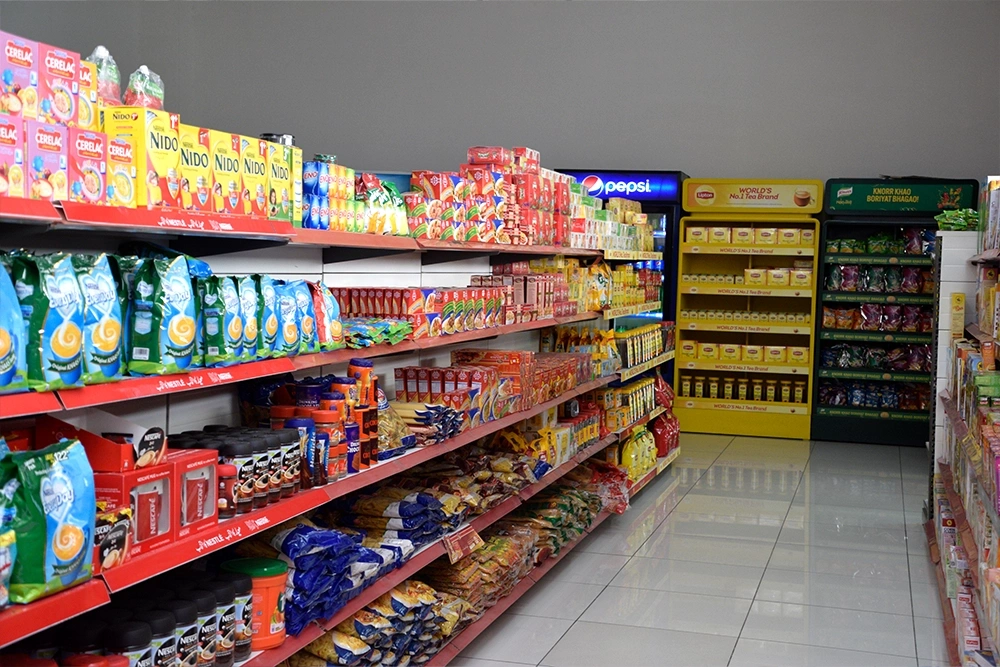In an increasingly interconnected world, dietary preferences and religious observances play a significant role in how and what people consume. For Muslims worldwide, the concept of halal food is not merely a preference but a fundamental aspect of their faith. Halal, an Arabic term meaning permissible, encompasses a comprehensive set of dietary laws derived from Islamic scripture, primarily the Quran and the Sunnah (the teachings and practices of Prophet Muhammad). Far from being a niche market, halal food is gaining mainstream recognition for its emphasis on ethical sourcing, hygiene, and wholesome preparation. This will delve into what makes food halal and, crucially, how to easily find delicious and permissible options, especially when you’re searching for halal food close to me.

Understanding Foods That Are Halal: More Than Just Meat
While many people associate halal solely with the ritualistic slaughter of animals, the scope of halal extends far beyond. It encompasses a holistic approach to food production, from farm to fork. To be considered halal, food must adhere to the following principles:
- Permissible Ingredients: The most fundamental aspect is the absence of forbidden (haram) ingredients. The most prominent haram foods include:
- Pork and its by-products: This includes any derivatives from pigs, such as gelatin, lard, and certain emulsifiers, unless certified halal.
- Alcohol: Any food or drink containing alcohol, even in small amounts, is haram. This includes certain flavorings, extracts, and vinegar types if they contain residual alcohol.
- Blood: The consumption of blood is forbidden.
- Carnivorous animals and birds of prey: Animals with fangs or talons (e.g., lions, tigers, eagles, owls) are not permitted.
- Amphibians and reptiles: Frogs, snakes, and other similar creatures are generally considered haram.
- Insects: With very few exceptions (like locusts in certain interpretations), insects are not halal.
- Dhabihah Slaughter (for meat): This is where the specific ritualistic slaughter comes into play. For meat to be halal, the animal must be:
- Slaughtered by a Muslim: The slaughterer must be a sane Muslim.
- Bismillah: The name of Allah (God) must be invoked at the time of slaughter. This signifies that the animal’s life is taken in the name of God, acknowledging His dominion.
- Swift and Humane: The slaughter must be performed swiftly with a sharp knife, severing the trachea, esophagus, and jugular veins. This method is intended to minimize pain and ensure complete drainage of blood.
- Healthy Animal: The animal must be healthy at the time of slaughter.
- Avoidance of Cross-Contamination: Halal food must not come into contact with haram substances during processing, preparation, or storage. This means separate utensils, cutting boards, and cooking surfaces if haram and halal foods are handled in the same kitchen.
- Ethical Treatment of Animals: While not always explicitly stated in strict legal terms, the spirit of halal strongly emphasizes the ethical treatment of animals, ensuring they are raised and slaughtered humanely.
- Natural and Wholesome: Halal principles also encourage the consumption of natural, wholesome, and pure foods, free from harmful additives or contaminants.
Understanding these tenets highlights that halal is not just about religious adherence but also about quality, hygiene, and responsible food practices.
The Growing Mainstream Appeal of Halal
In recent years, the appeal of foods that are halal has expanded beyond the Muslim community. Non-Muslims are increasingly drawn to halal options for several reasons:

- Perceived Higher Standards of Hygiene: The rigorous requirements for cleanliness and purity in halal food production often translate to higher standards of hygiene throughout the supply chain.
- Ethical Sourcing and Animal Welfare: The emphasis on humane treatment of animals in halal slaughter resonates with consumers who prioritize animal welfare.
- Health Benefits: The avoidance of certain additives and the focus on natural ingredients can be appealing to health-conscious individuals.
- Transparency: Certified halal products often provide greater transparency about their ingredients and sourcing, building consumer trust.
- Cultural Exploration: As global cuisines become more popular, many people are simply curious to try authentic halal dishes.
Halal Food Close to Me: Navigating Your Local Landscape
With the growing demand, finding halal food close to me has become significantly easier than it once was. Here’s how you can effectively locate halal options in your vicinity:
- Dedicated Halal Restaurants and Takeaways: Many cities, particularly those with a significant Muslim population, boast a wide array of dedicated halal restaurants. These can range from fine dining establishments to casual eateries serving various cuisines like Middle Eastern, South Asian, Turkish, and even Western fast food with halal options. A quick online search or using mapping apps with halal restaurant or halal food as keywords will often yield numerous results.
- Supermarkets with Halal Sections: Major supermarket chains are increasingly recognizing the demand for halal products. Look for designated halal sections in the meat aisle, often with clearly labeled packaged meats. Beyond meat, you might find halal-certified dairy products, baked goods, and pantry staples.
- Ethnic Grocery Stores: Local ethnic grocery stores, especially those catering to Middle Eastern, South Asian, or North African communities, are treasure troves of halal ingredients. These stores often stock a wider variety of halal meats, spices, and specialty products that might not be available in mainstream supermarkets.
- Online Directories and Apps: Several websites and mobile applications are specifically designed to help you find halal food. These platforms often allow you to search by location, cuisine type, and even dietary restrictions. Examples include:
- Yelp/Google Maps: These general mapping and review platforms often have filters for halal or allow users to tag businesses as halal.
- Dedicated Halal Apps: Apps like Halal Advisor, Zabihah, or Halal Guide are specifically curated for finding halal restaurants and grocery stores globally. These often include user reviews, menus, and operating hours.
- Community Resources: Local mosque websites, community centers, or even word-of-mouth within the Muslim community can be excellent resources for finding trusted halal establishments.
- Look for Certification Logos: When purchasing packaged foods, always look for reputable halal certification logos. These logos indicate that the product has been independently verified to meet strict halal standards. Prominent certification bodies include the Halal Food Authority (HFA), Islamic Food and Nutrition Council of America (IFANCA), and many others depending on your region.
- Ask and Verify: If you’re unsure whether a restaurant or food item is halal, don’t hesitate to ask the staff. A reputable establishment will be transparent about their sourcing and preparation methods.



